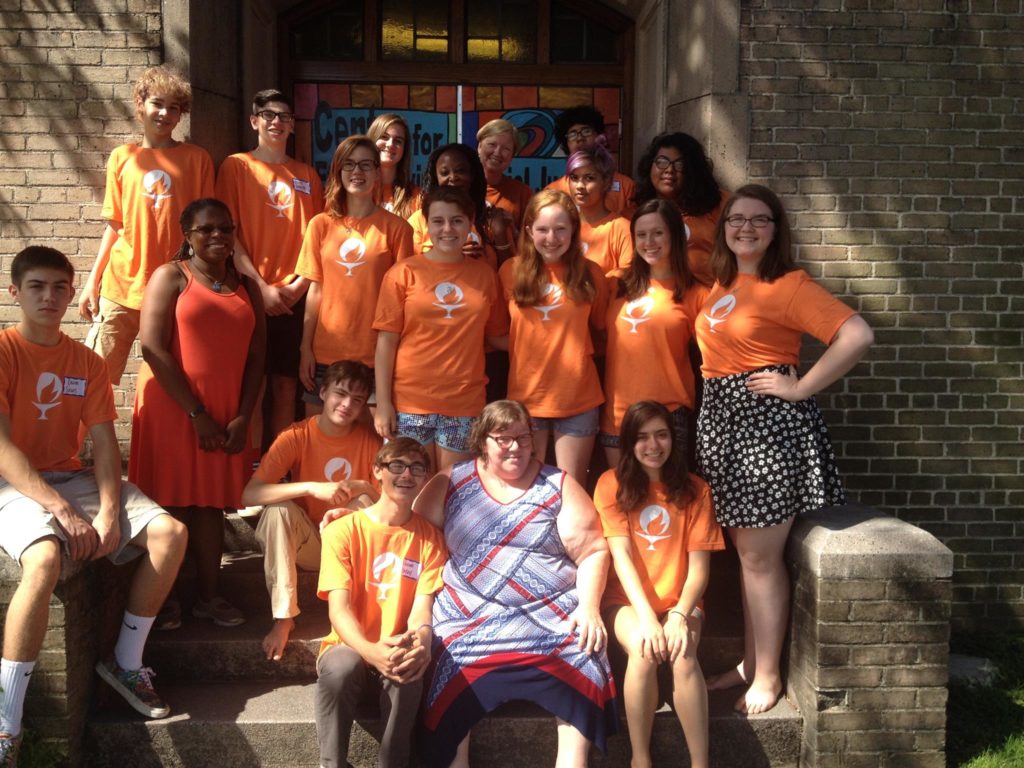This post was written by one of our 2015 interns, Lucy Tucker.
Nineteen years ago my birth announcement said I was born between two parades: Babylon and Hermes.
To most New Orleanians this makes sense. Any baby born during Mardi Gras season simply has to avoid the parade route on their way to the hospital.
I had no idea that when I moved away from this city (to Smith College in Northampton, MA) that I would be asked all sorts of questions about my home. These inquiries were not simply about Mardi Gras and celebration. They were layered with undertones and assumptions about race, class, and violence. I did not really understand how people viewed New Orleans until I left it.
I returned home after my first year at Smith to work at the Center for Ethical Living and Social Justice Renewal. CELSJR is a catalyst for promoting social, economic, environmental, and racial justice.
A few weeks ago we co-hosted Activate New Orleans with UUCSJ, a week-long program for high school-aged youth from all over the nation. Throughout the week youth and leaders participated in worship, direct service with our community partners, and dialogues about systemic racism and solidarity, intersectionality, UU history/theology, Hurricane Katrina, and resistance in New Orleans. We even made time for dancing.
The intensity and passion that each Activate member brought to every corner of this place was astounding.
When we talk about beloved community, we are not just talking about Unitarian Universalist community. From learning about Southern environmental justice in a cramped room to organizing items with Unity House for homeless people to swimming at a place called Nirvana, these youth embodied UU values. They looked out for each other, practiced self-care, and worked to be in mutual relationship with the people of my city.
When a group comes to stay with us at CELSJR, we ask them to join us in a dialogue on systemic racism before they participate in direct service. In my first day here, I watched students answer the question: “Who likes helping people?” Hands shot up. When asked: “Who likes asking for help?” hands slowly lowered.
True community engagement means realizing that as people doing direct service, we will learn from and work with those who have asked us to show up. Mutual relationships inspire beloved community.
The questions I got at Smith about New Orleans were from people who I think have not fully explored mutual relationships with people who hold less systemic power than they do—at least not yet.
I am ready to go back to Northampton and spread this idea. I’m excited to have others push me forward in understanding that as seekers of justice—from trans women of color being represented as cis and white in Hollywood films about Stonewall to the United Houma Nation’s struggle to be recognized by the federal government —we have to look at the core values this country was founded on. We must talk about race. We must listen. We must push back on all the oppressive systems in this country. We must expand our beloved community by moving forward with humanness, with power, with love.


